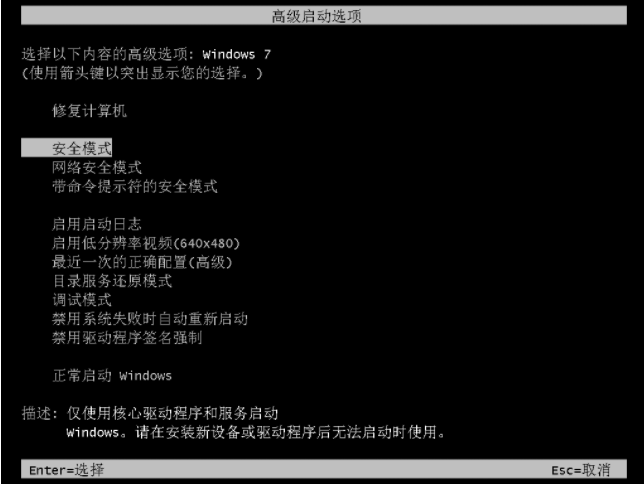Preventing information leakage vulnerabilities in Java
In the modern Internet era, protecting the security of users' personal information and sensitive data is crucial. As a very commonly used programming language, Java also needs to pay attention to the prevention of information leakage vulnerabilities. This article will introduce several common information disclosure vulnerabilities and give some code examples to demonstrate how to avoid these vulnerabilities.
- Prevent the leakage of sensitive information in log files
In Java applications, we often use logging to debug and record events. However, if sensitive information is accidentally recorded in the log, such as user passwords, credit card numbers, etc., then this information may be obtained by hackers, causing serious security issues.
In order to prevent this from happening, we can desensitize sensitive information before log output. The following is a sample code:
String username = "user";
String password = "password";
// 对密码进行脱敏处理
String maskedPassword = "********";
// 将脱敏后的信息输出到日志
logger.info("用户名:" + username);
logger.info("密码:" + maskedPassword);By desensitizing sensitive information, we can ensure that even if the log file is obtained by a hacker, the user's password and other sensitive information cannot be directly obtained.
- Prevent information leakage in HTTP requests
In Java applications, we often use HTTP requests to send data to the server. However, if sensitive information is accidentally included in the request, such as the user's ID number, mobile phone number, etc., then this information may also be obtained by hackers.
To prevent this from happening, we can use the HTTPS protocol to encrypt HTTP requests. The following is a sample code:
URL url = new URL("https://www.example.com");
HttpURLConnection connection = (HttpURLConnection) url.openConnection();
// 设置HTTPS连接
HttpsURLConnection httpsConnection = (HttpsURLConnection) connection;
httpsConnection.setHostnameVerifier(new HostnameVerifier() {
public boolean verify(String hostname, SSLSession session) {
// 验证服务器的证书
return true;
}
});
// 发送HTTP请求
httpsConnection.setRequestMethod("GET");
// 处理响应
int responseCode = httpsConnection.getResponseCode();
if (responseCode == HttpURLConnection.HTTP_OK) {
// 读取响应数据
BufferedReader reader = new BufferedReader(new InputStreamReader(httpsConnection.getInputStream()));
String line;
StringBuilder response = new StringBuilder();
while ((line = reader.readLine()) != null) {
response.append(line);
}
reader.close();
// 处理响应数据
System.out.println(response.toString());
}
// 关闭连接
httpsConnection.disconnect();By using the HTTPS protocol, we can encrypt the transmission of HTTP requests to ensure that sensitive information is not obtained by hackers during the transmission process.
- Prevent information leakage of database query results
In Java applications, we often output database query results to web pages or logs. However, if sensitive information is accidentally output, such as the user's account balance, transaction records, etc., then this information may be obtained by hackers.
In order to prevent this from happening, we can use safe output methods, such as replacing sensitive information with specific characters. The following is a sample code:
ResultSet resultSet = statement.executeQuery("SELECT * FROM users");
// 输出查询结果
while (resultSet.next()) {
String username = resultSet.getString("username");
String email = resultSet.getString("email");
double balance = resultSet.getDouble("balance");
// 对账户余额进行脱敏处理
String maskedBalance = "****";
// 将脱敏后的查询结果输出到网页或日志
System.out.println("用户名:" + username);
System.out.println("邮箱:" + email);
System.out.println("账户余额:" + maskedBalance);
}By desensitizing sensitive information, we can ensure that even if the query results are obtained by hackers, sensitive information such as the user's account balance cannot be directly obtained.
Summary:
This article introduces three common information leakage vulnerabilities and gives corresponding code examples to demonstrate how to prevent these vulnerabilities. Only by protecting users' personal information and sensitive data can we truly ensure the security of the Internet. Therefore, when writing Java programs, be sure to pay attention to preventing the occurrence of information leakage vulnerabilities.
The above is the detailed content of Preventing Information Disclosure Vulnerabilities in Java. For more information, please follow other related articles on the PHP Chinese website!
 如何使用Docker进行容器的安全扫描和漏洞修复Nov 07, 2023 pm 02:32 PM
如何使用Docker进行容器的安全扫描和漏洞修复Nov 07, 2023 pm 02:32 PMDocker已成为开发和运维人员不可或缺的工具之一,因为它能够把应用程序和依赖项打包到容器中,从而获得可移植性。然而,在使用Docker时,我们必须注意容器的安全性。如果我们不注意,容器中的安全漏洞可能会被利用,导致数据泄露、拒绝服务攻击或其他危险。在本文中,我们将讨论如何使用Docker进行容器的安全扫描和漏洞修复,并提供具体的代码示例。容器的安全扫描容器
 如何在FastAPI中实现请求的安全防护和漏洞修复Jul 29, 2023 am 10:21 AM
如何在FastAPI中实现请求的安全防护和漏洞修复Jul 29, 2023 am 10:21 AM如何在FastAPI中实现请求的安全防护和漏洞修复引言:在开发web应用的过程中,确保应用程序的安全性是非常重要的。FastAPI是一个快速(高性能)、易于使用、具有自动文档生成的Pythonweb框架。本文将介绍如何在FastAPI中实现请求的安全防护和漏洞修复。一、使用安全的HTTP协议使用HTTPS协议是保证应用程序通信安全的基础。FastAPI提供
 Nginx的漏洞挖掘与修复Jun 10, 2023 am 10:12 AM
Nginx的漏洞挖掘与修复Jun 10, 2023 am 10:12 AM随着互联网的不断发展,更多的企业和机构开始关注网络安全,而Nginx作为一款热门的WEB服务器,被广泛使用。但是,Nginx也不可避免地存在漏洞,这些漏洞可能会危及服务器的安全性。本文将介绍Nginx的漏洞挖掘和修复方法。一、Nginx漏洞分类认证漏洞:认证是一种验证用户身份的方式,一旦认证系统存在漏洞,黑客就可以绕过认证,直接访问被保护的资源。信息泄露漏洞
 log4j漏洞修复指南: 彻底了解并快速解决log4j漏洞Feb 19, 2024 am 08:20 AM
log4j漏洞修复指南: 彻底了解并快速解决log4j漏洞Feb 19, 2024 am 08:20 AMlog4j漏洞修复教程:全面了解并迅速解决log4j漏洞,需要具体代码示例引言:最近,关于Apachelog4j的严重漏洞引起了广泛关注和讨论。该漏洞使攻击者能够通过恶意构造的log4j配置文件远程执行任意代码,从而危及服务器的安全。本文将全面介绍log4j漏洞的背景、原因以及修复方法,并提供具体的代码示例,以帮助开发人员及时修复该漏洞。一、漏洞背景Apa
 PHP SQL注入漏洞的检测和修复Aug 08, 2023 pm 02:04 PM
PHP SQL注入漏洞的检测和修复Aug 08, 2023 pm 02:04 PMPHPSQL注入漏洞的检测和修复概述:SQL注入是指攻击者利用Web应用程序对输入进行恶意注入SQL代码的一种攻击方式。PHP作为一种广泛应用于Web开发的脚本语言,被广泛用于开发动态网站和应用程序。然而,由于PHP的灵活性和易用性,开发者常常忽略了安全性,导致了SQL注入漏洞的存在。本文将介绍如何检测和修复PHP中的SQL注入漏洞,并提供相关代码示例。检
 教你win7系统360漏洞修复后蓝屏怎么办Jul 21, 2023 pm 06:33 PM
教你win7系统360漏洞修复后蓝屏怎么办Jul 21, 2023 pm 06:33 PM导致win7蓝屏的原因很多,有可能是软件或者程序不兼容,中毒等等都可能。最近就有网友说自己的win7系统360漏洞修复后蓝屏了,不知道如何解决win7蓝屏的问题。今天小编就教下大家win7系统360漏洞修复后蓝屏的解决方法。我们可以卸载掉360新安装的软件或更新程序解决,具体的步骤如下:1、首先重启电脑,在电脑开机的时候按住f8,出现启动项之后我们选择安全模式进入。2、进入到安全模式之后点击开始菜单栏,打开运行窗口,输入appwiz.cpl,再点击确定。3、接着点击查看已安装的更新,找到最近安装
 PHP中的Web安全防护May 25, 2023 am 08:01 AM
PHP中的Web安全防护May 25, 2023 am 08:01 AM在现今互联网社会中,Web安全已经成为了一个重要的问题。特别是对于使用PHP语言进行Web开发的开发人员来说,常常会面对各种安全攻击和威胁。本文将从PHPWeb应用的安全入手,讨论一些Web安全防护的方法和原则,来帮助PHPWeb开发人员提高应用的安全性。一、理解Web应用安全Web应用安全是指Web应用程序处理用户请求时,保护数据、系统和用户的安全性。
 Nginx常见的安全漏洞及其修复方法Jun 11, 2023 am 08:21 AM
Nginx常见的安全漏洞及其修复方法Jun 11, 2023 am 08:21 AMNginx是一款广泛使用的Web服务器和反向代理服务器,也是重要的网络基础设施组件。随着网络攻击日益增加,Nginx的安全问题也逐渐受到关注。本文将介绍一些常见的Nginx安全漏洞及其修复方法。绕过访问限制攻击者可能会通过绕过Nginx的访问限制来获得未经授权的访问权限。例如,攻击者可能会使用"../"符号来穿越目录,或者在URL中使用非标准的编码来绕过过滤


Hot AI Tools

Undresser.AI Undress
AI-powered app for creating realistic nude photos

AI Clothes Remover
Online AI tool for removing clothes from photos.

Undress AI Tool
Undress images for free

Clothoff.io
AI clothes remover

AI Hentai Generator
Generate AI Hentai for free.

Hot Article

Hot Tools

PhpStorm Mac version
The latest (2018.2.1) professional PHP integrated development tool

MantisBT
Mantis is an easy-to-deploy web-based defect tracking tool designed to aid in product defect tracking. It requires PHP, MySQL and a web server. Check out our demo and hosting services.

SublimeText3 Linux new version
SublimeText3 Linux latest version

SecLists
SecLists is the ultimate security tester's companion. It is a collection of various types of lists that are frequently used during security assessments, all in one place. SecLists helps make security testing more efficient and productive by conveniently providing all the lists a security tester might need. List types include usernames, passwords, URLs, fuzzing payloads, sensitive data patterns, web shells, and more. The tester can simply pull this repository onto a new test machine and he will have access to every type of list he needs.

EditPlus Chinese cracked version
Small size, syntax highlighting, does not support code prompt function






